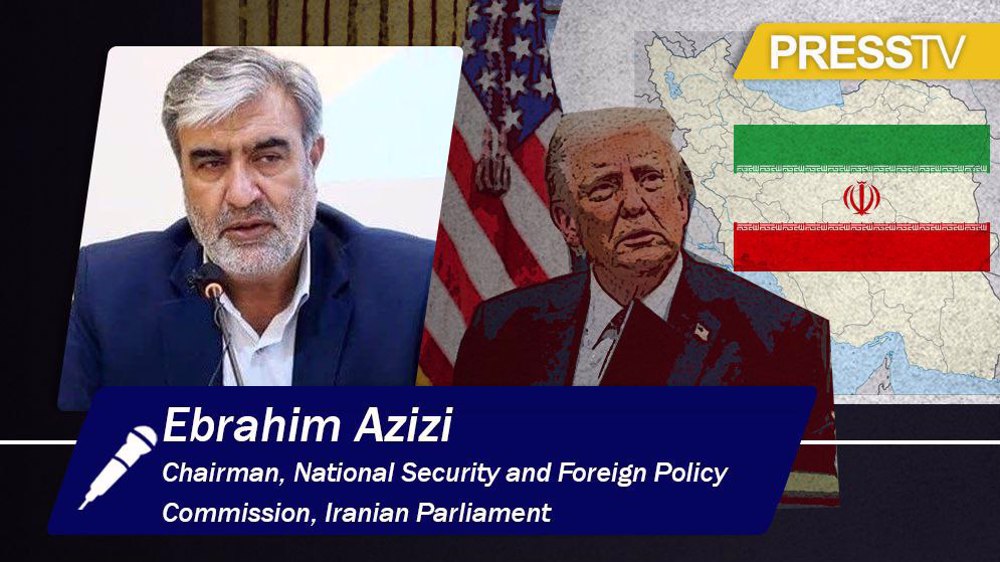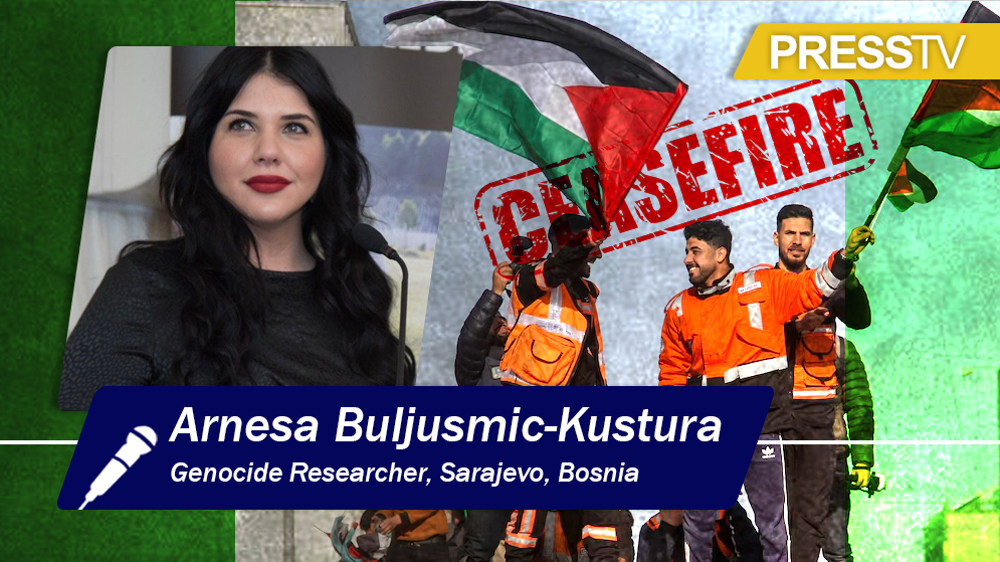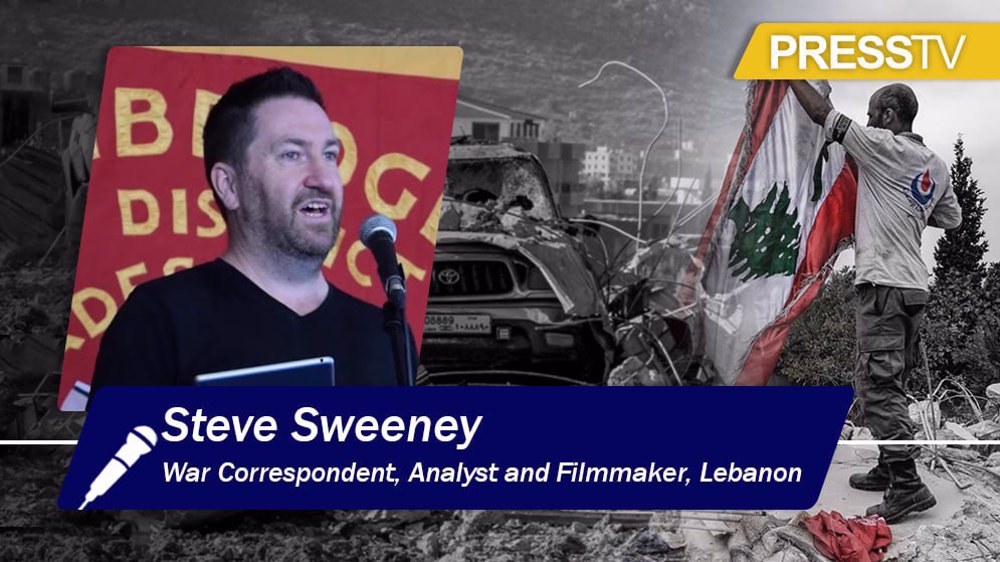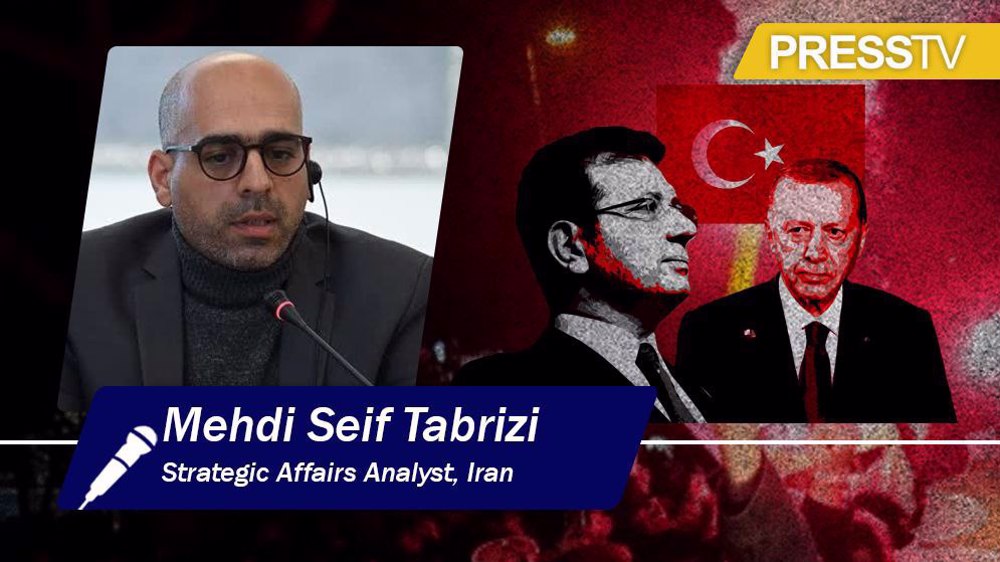Turkey’s political unrest to significantly weaken Erdoğan’s grip on power: Analyst
By Farzaneh Ashoorioun
Protests in Turkey against the imprisonment of Istanbul Mayor Ekrem İmamoğlu persist despite police crackdowns and the arrest of demonstrators. The ban on public gatherings in Turkey's three largest cities—Istanbul, Izmir, and Ankara—has been extended until April 1.
Press TV website spoke with Mehdi Seif Tabrizi, a strategic affairs analyst who has worked extensively on Turkish politics, on the implications of the simmering unrest for Turkey and the political future of President Recep Tayyip Erdoğan.
Q. Turkey has been embroiled in widespread protests in recent weeks over the arrest of Istanbul Mayor Ekrem İmamoğlu. What are the charges against him?
A. The charges against Ekrem İmamoğlu, the mayor of Istanbul and currently the only official electoral rival to President Recep Tayyip Erdoğan in Turkey’s early elections, are diverse and extensive. These include accepting bribes, collaborating with “terrorist organizations,” establishing shell companies to bypass municipal regulations and unlawfully secure projects, and cooperating with Kurdish groups in municipal elections. There are also allegations of forging academic credentials, with his master’s degree revoked by the university nearly 20 years later.
It is evident that many of these charges are politically motivated. The annulment of his academic degree effectively disqualifies İmamoğlu from running in the elections. Reports indicate that during two interrogation sessions, he was cleared of allegations regarding ties to terrorist organizations. However, financial corruption accusations remain, which, given his successful tenure as Istanbul’s mayor, also appear to have political motivations.
Q. How does İmamoğlu’s arrest impact Turkish politics, given that he is seen as Erdoğan’s strongest political rival at the moment?
A. The impact of İmamoğlu’s arrest can be analyzed in two broad categories:
- Effects on political parties’ operations
- The prevailing political atmosphere in Turkish society
The ruling Justice and Development Party (AKP) is expected to employ the same strategy against opposition parties as it did following the 2016 coup attempt. The first phase will likely involve mass arrests, followed by further detentions under the pretext of national security threats. This could lead to the imprisonment of other key figures, such as Özgür Özel, the current leader of the Republican People’s Party (CHP), along with other senior members.
There are already rumors of the potential arrest of Mansur Yavaş, the popular mayor of Ankara and another major rival to Erdoğan. However, the current political climate poses a challenge for Erdoğan, as opposition parties that previously had no ideological alignment with the CHP have now expressed solidarity with them in recent protests.
The broader societal impact of Erdoğan’s actions could be even more severe, potentially deepening political divisions in Turkey. His miscalculated move has reinforced the perception that democracy in the country is eroding. The protests are not limited to secular groups—segments of Turkey’s religious population, including former Erdoğan supporters, have also joined the demonstrations.
Q. Is this part of a strategy to sideline or remove rivals before the next election?
A. These actions can be fully interpreted within this context. Even in the previous Turkish presidential election, İmamoğlu was Erdoğan’s main rival. However, in the months leading up to the election, the Turkish judiciary brought charges against him.
According to Turkey’s electoral laws, a candidate cannot run if they have an open legal case. As a result, İmamoğlu was barred from the final stage of the presidential race, despite having a strong chance of winning.
Now, based on recent polls, Erdoğan’s party has concluded that if the current trend continues, his chances of winning any early election will drop significantly. Therefore, by resorting to the same strategy, they have once again moved to eliminate political rivals.
Q. What are the key demands of protesters? Is it just about İmamoğlu’s release?
A. Initially, protesters—especially students in Turkish universities—demanded the release of Istanbul’s popular mayor, İmamoğlu.
However, due to the police response and politicians’ handling of the situation, their demands have evolved. Now, the primary demand of Turkish youth and protesters is Erdoğan’s resignation and his departure from office.
Q. Is the scope of ongoing protests broader than just the opposition party?
A. With several days having passed since the protests began, many political parties and people from various political and religious backgrounds have expressed solidarity and support for the core group of demonstrators.
Q. Will the opposition unite or remain divided?
A. Currently, a relatively fragile alliance has formed among opposition forces. However, the government’s approach toward political parties and the security forces’ handling of protesters will play a crucial role in determining whether the opposition strengthens or remains fragmented.
Q. How independent is the Turkish judiciary in light of this case?
A. Following the failed 2016 coup, Erdoğan carried out a deep purge within the military and judiciary. At present, it is evident that all key decision-making bodies within Turkey’s judiciary are controlled by the Justice and Development Party (AKP). As a result, we can say, the judiciary lacks independence in political matters.
Q. How has the international community responded to the protests in Turkey? How might this situation affect Turkey’s foreign relations?
A. One key reason why these protests are unlikely to lead to structural political change is the absence of foreign support.
European powers are reluctant to alienate Turkey or distance themselves from Erdoğan, as they view Turkey as a crucial ally in countering Trump’s influence in the current geopolitical landscape. The situation in Syria also discourages the US from confronting Turkey, as Istanbul effectively controls the Jolani-led administration in Damascus.
Similarly, Arab countries, due to their strategic interests in Syria, prefer to increase their influence within Syria’s ruling structure rather than clashing with an Ikhwani-led government in Damascus and Istanbul.
Although Russia’s dependence on Turkey—heightened due to the war in Ukraine—has somewhat decreased, Moscow still favors Erdoğan’s continued rule. Consequently, Western nations and institutions are expected to limit their response to verbal statements rather than taking substantive action.
Q. Has the media been able to cover the protests in an unbiased manner?
A. With nearly 80 percent of Turkish media under state control, open and unbiased coverage of the protests is unlikely. Additionally, several journalists have reportedly been arrested in recent days.
Q. Could the protests escalate into a deeper crisis?
A. Turkey’s state institutions are extremely robust, particularly since Erdoğan has heavily focused on consolidating them since the 2016 coup attempt. While these protests are unlikely to lead to a structural shift in government or Erdoğan’s removal, they will undoubtedly influence Turkey’s upcoming elections.
Regardless of whether İmamoğlu, Mansur Yavaş, or another candidate runs against Erdoğan, Turkish society will likely vote primarily to oppose Erdoğan’s 30-year rule.
Q. How will this unrest affect Turkey’s economy?
A. Following the arrest of Istanbul’s mayor, the Turkish lira plummeted to its lowest level in decades, and the stock market reacted sharply negatively. With inflation exceeding 90 percent in recent years, these developments will likely deepen public dissatisfaction. This economic instability could become Erdoğan’s Achilles' heel in the upcoming elections.
Q. How does this crisis compare to previous ones in Turkey?
A. The current crisis appears to have broader and more profound implications, as it has united various political parties and, most importantly, diverse segments of Turkish society under a common cause. This significantly weakens Erdoğan’s ability to consolidate support ahead of the elections.

Trump’s letter not an olive branch but a pressure tactic against Iran: Sr. Lawmaker

Gaza truce deal durability uncertain due to lack of Israeli commitment: Genocide scholar

I saw shredded bodies scattered on roads and hanging from trees in Lebanon: Journalist
Israeli forces kill dozens of civilians in Gaza
Yemeni forces announce downing of US MQ-9 drone
VIDEO | Gaza mourning instead of celebrating Eid
French far-right leader Le Pen barred from presidential race after embezzlement conviction
VIDEO | Iranians mark Eid al-Fitr with mass prayers
Iran, Turkmenistan agree to launch passenger train services
Gunmen kill 12 civilians in western, central Syria on 1st day of Eid al-Fitr
VIDEO | Gazans observe Eid under bombing and devastation







 This makes it easy to access the Press TV website
This makes it easy to access the Press TV website